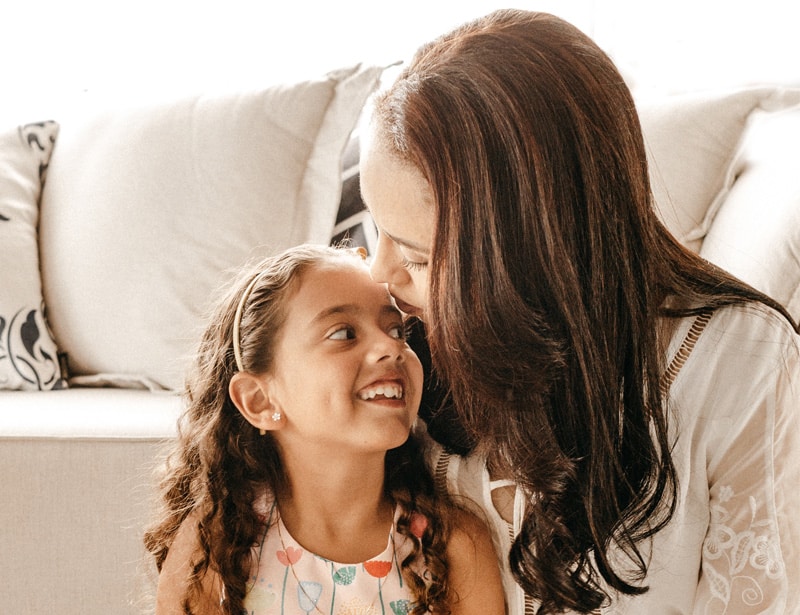70 Positive Affirmations For Kids To Brighten Their Days
Children easily believe and internalize things said to them. Words can shape how they view themselves and others. So why not help them learn to have a positive outlook on life using the power of words? In this article, we share 70 positive affirmations for kids.
Positive affirmations for kids help boost confidence, self-esteem, and resilience. Children who practice positive self-talk can recognize and counteract negative thoughts with positive thinking. Read on to learn more.
Related Read: Morning Affirmations, Best Children's Books About Nature And The Environment.
What are positive affirmations?

Positive affirmations are positive phrases you say to yourself. Affirmations are tied to values and have deep meaning to the person saying them. They are not empty praise or flattery.
You can affirm with the voice in your head, speak out loud, or write something down. It is a self-help strategy used to challenge negative or unhelpful thoughts. It's also a way to steer your focus on the positives of a bad situation rather than dwell on the negatives.
Affirmations are usually simple phrases said in the present tense that you can remember and repeat easily. Keeping it simple allows people to recall an affirmation quickly when faced with a triggering situation. Simple words also mean that young children can practice affirmations, too.
Is there proof that positive affirmations help anyone?
If you have ever felt confident, happy, angry, or scared because of something said, then you can't deny the power of words on the human psyche. Do you know who you converse with the most? It's yourself. Self-talk is something that humans do in daily life, except for when they are sleeping.
The voice in our head acts as our consultant for making decisions all the time. It gives you the courage to go against warnings or encouragements to do what you think you should do. Your self-talk pattern is tied to how you feel about yourself. And many people believe you can talk yourself into a new way of thinking and doing things.
Some people see positive affirmations as magical, while others believe it's pseudoscience. However, it is a widely accepted psychological theory that speaking positive words to oneself can ease stress, restore self-confidence, and affirm self-worth.
Scientific Proof

A review by psychologists makes a case for self-affirmation as an excellent tool for overcoming negative feelings3. It activates positive thinking by guiding people to focus on things that are going well in their lives. The researchers attested to improvements in health, education, and relationships as benefits of affirmation.
A 2016 study tested the effects of affirmations on behavioral change1. Unlike the unaffirmed group, they found that the affirmed participants successfully changed their sedentary behavior in response to health messaging. The study also observed increased activity in the regions of the brain associated with self-processing and valuation during affirmation practice.
There's more evidence that affirmations can create new neural pathways in the brain (plasticity). A study showed that adults can experience plasticity by consistently practicing things like meditating2, exercising, and affirmation.
Why should kids practice positive affirmations?
Self-talk is constant, meaning children have all their waking hours to build a positive mindset and improve their overall well-being using positive thoughts and affirmations.
Affirmations can help kids be future-oriented. It helps them keep their goals in mind. It's also a way to focus on simple, actionable steps to achieve their goals. Below are some other benefits
Dealing with emotions.

Children constantly process new situations and emotions with little or no experience to fall back on. Although falling off a bicycle may not seem like a big deal to adults, it may be a major event for a child.
Positive affirmations can teach kids to acknowledge and regulate their feelings. They'll be able to manage emotionally charged situations without hurting themselves or others.
Building resilience.
You would agree that the world isn't fair and that people will face challenges throughout their lives. Children must build resilience so that they can stand up to these challenges.
Positive self-talk is a way to teach children that if a situation isn’t going great, rather than just accepting it hopelessly, they can at least talk back. This is a way to build a growth mindset.
Combat negative thoughts.
Negative thoughts exist, and we don't even have to try before they invade our minds. Children are also vulnerable to negative thinking, which may manifest as negative self-talk, fear, apathy, anger, and other unpleasant behavior. Using positive affirmations, kids can replace negative thoughts with positive ones.
Fix self-image.

Sometimes, things happen to make kids think less of themselves. It could be failing a test or being let down by a friend. Positive affirmations help them focus on their positive qualities. Affirmations that remind them they are valuable, beautiful, talented, and lovable help strengthen a positive self-image.
Improve academic performance.
For many elementary and middle school children, academics can be challenging. Their academic performance may quickly become a source of pressure. Kids who aren't doing so well may experience serious anxiety. According to a clinical child psychologist, giving daily affirmations can help a child build the confidence to cope with academic challenges.
You may have reservations.
Positive affirmations are positive, but you may be skeptical about it and for good morning reasons. You may worry that specific affirmations may result in your child's unbalanced sense of importance. Or set the child up for disappointment when things don't go exactly as the positive affirmation said it would.
The way to prevent this is to balance positive affirmations with essential life skills. Teach your child to be a great friend by being a great listener, taking turns, apologizing when wrong, mutual respect, and being kind.
Also, teaching your child to make their own choices allows them to practice confidence. But more importantly, it will enable them to build a growth mindset when things don't go according to plan.
70 positive affirmations for kids

The words kids speak to themselves can tear them down or build them up. It can influence their self-esteem, aspirations, attitudes, and relationships. Here are some affirmations to draw inspiration from.
Positive affirmations to help kids regulate emotions.
- It's okay to have big feelings.
- It's okay to feel sad.
- It's okay to feel angry.
- My positive thoughts create positive feelings.
- My feelings are important.
- I choose my words with kindness.
- I can stay calm when I'm upset.
- I listen to my feelings.
- I am nice even when it feels hard.
- Hurtful moments are not permanent.
Affirmations for kids struggling with low self-esteem.
- I am special and important.
- Other people don't determine my worth.
- I am proud of myself.
- I believe in myself.
- I matter.
- I am beautiful.
- I make the world a better place.
- I am enough.
- I am unique.
- I know it's okay to be different.
Positive affirmations for kids struggling to be expressive.
- Having ideas is fun.
- My voice matters.
- I have many talents.
- I am a hard worker.
- I am a confident speaker.
- I have great ideas.
- I know when to ask for help.
- I stand up for myself.
- I can be whatever I want to be.
- I feel confident sharing my opinion.
Positive affirmations for kids struggling with peer relationships.
- I am a good friend.
- I am an amazing person.
- I radiate positive energy.
- I spread positivity.
- I am a good listener.
- I am a good person.
- I surround myself with positive people.
- I can make new friends.
- I include others.
- I say nice things about other people.
Positive affirmations for kids to cope with mistakes.
- It's okay to make mistakes.
- Mistakes are opportunities for a fresh start.
- I have a growth mindset.
- I forgive myself for my mistakes.
- My mistake does not determine my future.
- I own up to my mistakes.
- One bad moment doesn't mean a bad day.
- My mistakes are not a reflection of who I am.
- I did my best today.
- I'm not afraid to make mistakes.
Positive affirmations for kids struggling with academics.
- Learning is fun, I enjoy it.
- I can do this assignment.
- My brain is powerful.
- I am always getting better.
- I can solve hard problems.
- It's okay not to be good at everything.
- I can achieve academic excellence.
- I am an excellent student.
- I'm excited to learn new things.
- I am motivated to study.
Morning Positive Affirmations.
- Wonderful things will happen to me.
- I will have an amazing day.
- I create my own happiness today.
- The world is full of endless possibilities.
- My life is fun and joyful.
- I have a bright future ahead of me.
- I have a mindset of abundance.
- My life is blessed.
- I can get through anything.
- I do good for others.
How do you make practicing positive affirmations fun for your kids?
Getting your kids to embrace daily affirmations may take time to happen. It may feel silly and embarrassing to say the affirmations out loud. But they'll come to enjoy it with time and the right motivation.
Practice with them.

Kids learn best by example, so practicing affirmations with your kids is best. That could help get rid of awkwardness fast. Practicing together may also present opportunities for kids to ask questions regarding the affirmations.
Make it fun and calming.
Morning affirmations don't have to be a chore. You can pair it with some fun activities for young kids like singing and dancing. With older kids, taking deep breaths may help ease them into it.
Add a note of mystery.
To keep daily affirmations from getting boring, you can add an element of surprise. You can slip one affirmation note in their lunch box. You could also wrap affirmation slips around candy, fortune cookie style.
Guide them to reflect.

Ask your kids to keep a journal to record days and situations where they feel affirmations have been helpful. If they can reflect on that, they find motivation to continue positive self-talk.
Related read: How to write a journal.
Let them pick the affirmation for the day.
The affirmations your kids speak daily should speak to what's going on in their lives. Encourage them to pick the positive affirmation they need to overcome their challenges.
Make it hard to ignore.
You can put up a large poster with lots of affirmations to choose from in your children's bedroom, on the washroom mirror, or on the fridge. The goal is to put up physical reminders so they don't forget or give up.
Get them involved from the start.
The right affirmation at the right time is most impactful. Don't force your kids to repeat affirmations copied verbatim from the internet. Allowing them to choose and edit helps them establish an initial connection with the words. It makes it easier for them to repeat the words and believe it.
Conclusion: Affirmation For Kids
From positive morning affirmations to emotion regulators, these words are a powerful tool for teaching self-love, emotional intelligence, and resilience. It can also boost a child’s self-esteem. Practicing affirmations is easy. All a child has to do is take a deep breath and say the words.
Looking at the 70 affirmations we've shared, which positive affirmation would you practice with your child right now?
| 1 |
Cascio, C. N., O’Donnell, M. B., Tinney, F. J., Lieberman, M. D., Taylor, S. E., Strecher, V. J., & Falk, E. B. (2015). Self-affirmation activates brain systems associated with self-related processing and reward and is reinforced by future orientation. Social Cognitive and Affective Neuroscience. |
| 2 |
Forsyth, J. K., Bachman, P., Mathalon, D. H., Roach, B. J., & Asarnow, R. F. (2015). Augmenting NMDA receptor signaling boosts experience-dependent neuroplasticity in the adult human brain. Proceedings of the National Academy of Sciences of the United States of America. |
| 3 |
Cohen, G. L., & Sherman, D. K. (2014b). The Psychology of Change: Self-Affirmation and Social Psychological Intervention. Annual Review of Psychology, 65(1), 333–371. |
Jen’s a passionate environmentalist and sustainability expert. With a science degree from Babcock University Jen loves applying her research skills to craft editorial that connects with our global changemaker and readership audiences centered around topics including zero waste, sustainability, climate change, and biodiversity.
Elsewhere Jen’s interests include the role that future technology and data have in helping us solve some of the planet’s biggest challenges.
Fact Checked By:
Isabela Sedano, BEng.

